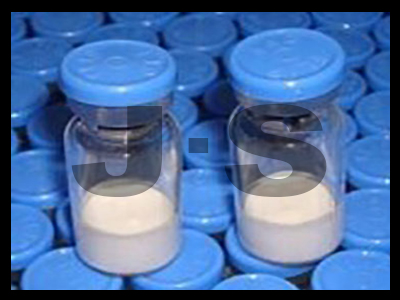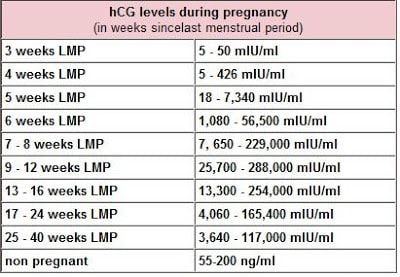
Human Chorionic Gonadotropin HCG
Name: Human Chorionic Gonadotropin / HCG
Form: Sterile Filtered White lyophilized (freeze-dried) powder.
Dosage: 2000 IU/vial
Top color: Usually Black / blue / green / golden.
Inventory: 10000 vials for sell.
MOQ: 100 vials
Package: 10vials/kit. 10kits/bag/carton
Pack material: Shockproof film, shockproof envelope, and Cartons.
Logo: with or without both ok.
OEM: Offer OEM service. Customed dosage & brand & LOGO & package & top color. OEM MOQ 100kits (=1000VIALS)
Shipment: By express to buyers’ door. 100% make sure delivery.
Payment: TT/ Western Union/BTC/ETV/VISA and so on, please contact by email.
Shipment time: Within three working days after payment. Usually need ten days to arrive buyers’ address. Resend if lost.

DESCRIPTION
What is HCG?
HCG (Human Chorionic Gonadotropin) is often called the pregnancy hormone because it is made by cells formed in the placenta, which nourishes the egg after it has been fertilized and becomes attached to the uterine wall. Levels can first be detected by a blood test about 11 days after conception and about 12-14 days after conception by a urine test. Inexpensive, urine-based early detection pregnancy tests can be purchased from our corporate sponsor Fairhaven Health.
Typically, the hCG levels will double every 72 hours. The level will reach its peak in the first 8-11 weeks of pregnancy and then will decline and level off for the remainder of the pregnancy.
What You Need to Know About hCG Levels:
1.As you get further along in pregnancy and the hCG level gets higher, the time it takes to double can increase to about every 96 hours.
2.Caution must be used in making too much of hCG numbers. A normal pregnancy may have low hCG levels and result in a perfectly healthy baby. The results from an ultrasound after 5 -6 weeks gestation are much more accurate than using hCG numbers.
3.An hCG level of less than 5 mIU/mL is considered negative for pregnancy, and anything above 25 mIU/mL is considered positive for pregnancy.
4.An hCG level between 6 and 24 mIU/mL is considered a grey area, and you’ll likely need to be retested to see if your levels rise to confirm a pregnancy.
5.The hCG hormone is measured in milli-international units per milliliter (mIU/mL).
6.A transvaginal ultrasound should be able to show at least a gestational sac once the hCG levels have reached between 1,000 – 2,000 mIU/mL. Because levels can differentiate so much and conception dating can be wrong, a diagnosis should not be made by ultrasound findings until the hCG level has reached at least 2,000 mIU/mL.
7.A single reading is not enough information for most diagnoses. When there is a question regarding the health of the pregnancy, multiple testings of hCG done a couple of days apart give a more accurate assessment of the situation.
8.The hCG levels should not be used to date a pregnancy since these numbers can vary so widely.
9.There are two common types of hCG tests. A qualitative test detects if hCG is present in the blood. A quantitative test (or beta) measures the amount of hCG actually present in the blood.
Guideline to hCG levels in weeks during pregnancy

* These numbers are just a guideline – every woman’s level of hCG can rise differently. It is not necessarily the level that matters, but rather the change in the level.
hCG Levels numbers:
Human chorionic gonadotropin (hCG) is a hormone normally produced by the placenta. If you are pregnant, you can detect it in your urine. Blood tests measuring hCG levels can also be used to check how well your pregnancy is progressing, including your baby’s development.
Confirming pregnancy
After you conceive (when the sperm fertilises the egg), the developing placenta begins to produce and release hCG.
It takes about 2 weeks for your hCG levels to be high enough to be detected in your urine using a home pregnancy test.
A positive home test result is almost certainly correct, but a negative result is less reliable.
If you do a pregnancy test on the first day of your missed period, and it’s negative, wait about a week. If you still think you might be pregnant, do the test again or see your doctor.
hCG blood levels
Low levels of hCG may be detected in your blood around 8 to 11 days after conception. hCG levels are highest towards the end of the first trimester, then gradually decline over the rest of your pregnancy.
The average levels of hCG in a pregnant woman’s blood are:
non-pregnant women - less than 10 U/L
borderline pregnancy result - 10 to 25 U/L
positive pregnancy test - more than 25 U/L
pregnant women, about 4 weeks after the last menstrual period or LMP (average 1 week before first missed period) - 0 to 750 U/L
pregnant women, about 5 weeks after the LMP (week after first missed period) - 200 to 7,000 U/L
pregnant women, about 6 weeks after the LMP - 200 to 32,000 U/L
pregnant women, about 7th weeks after the LMP - 3,000 to 160,000 U/L
pregnant women, about 8 to 12 weeks after the LMP - 32,000 to 210,000 U/L
pregnant women, about 13 to 16 weeks after the LMP - 9,000 to 210,000 U/L
pregnant women, about 16 to 29 weeks after the LMP - 1,400 to 53,000 U/L
pregnant women, about 29 to 41 weeks after the LMP - 940 to 60,000 U/L
The amount of hCG in your blood can give some information about your pregnancy and the health of your baby. For example hCG levels can indicate:
the presence of multiple pregnancies (for example, twins and triplets) – hCG levels are usually much higher when there is more than one fetus
a loss of pregnancy (miscarriage) or risk of miscarriage
an ectopic pregnancy – where the fertilised egg implants in the fallopian tube
problems with the growth or development of the baby
abnormal tissue growth in the ovaries or uterus, including some types of cancer in women who are not pregnant.
Levels of hCG in your blood don’t provide a diagnosis of anything. They can only suggest that there are issues to look into.
If you have any concerns about your hCG levels, or wish to know more, speak to your doctor or maternity healthcare professional
What Does a Low hCG Level Mean?
A low hCG level can mean any number of things and should be rechecked within 48-72 hours to see how the level is changing. A low level can indicate:
Miscalculation of pregnancy dating
Possible miscarriage or blighted ovum
Ectopic pregnancy
Is a High hCG Level a Bad Thing?
A high level of hCG can also mean a number of things and should be rechecked within 48-72 hours to evaluate changes in the level. A high level can indicate:
Miscalculation of pregnancy dating
Molar pregnancy
Multiple pregnancies
Should I Check My hCG level Regularly?
It’s not common for doctors to routinely check your hCG levels unless you are showing signs of a potential problem.
A health care provider may recheck your levels if you are bleeding, experiencing severe cramping, or have a history of miscarriage.
What Can I Expect After a Pregnancy Loss?
Most women can expect their levels to return to a non-pregnant range about 4 – 6 weeks after a pregnancy loss has occurred.
This can differentiate by how the loss occurred (spontaneous miscarriage, D & C procedure, abortion, natural delivery) and how high the levels were at the time of the loss.
Healthcare providers usually will continue to test hCG levels after a pregnancy loss to ensure they return back to <5.0.
What Can Interfere With My hCG Levels?
If you get a positive test result, you are most likely pregnant. False positives are extremely rare. However, there are some conditions that may cause a false positive, such as certain types of cancer and early miscarriage. Some antibodies may also interfere with test results.
Medications that contain hCG may interfere with hCG levels, as well.
These medications are often used infertility treatments, and your health care provider should advise you on how they may affect a test.
All other medications such as antibiotics, pain relievers, contraception or other hormone medications should not have any effect on a test that measures hCG.
Download the Fetal Life app: iOS / Android featuring a kick counter and other useful prenatal wellness tools.
Want to Know More?
Calculating Gestation Age
Concerns Regarding Early Fetal Development
If overdose is suspected
If you think there has been an overdose, call your poison control center or get medical care right away. Be ready to tell or show what was taken, how much, and when it happened.
Consumer information use
If your symptoms or health problems do not get better or if they become worse, call your doctor.
Do not share your drugs with others and do not take anyone else's drugs.
Keep all drugs in a safe place. Keep all drugs out of the reach of children and pets.
Throw away unused or expired drugs. Do not flush down a toilet or pour down a drain unless you are told to do so. Check with your pharmacist if you have questions about the best way to throw out drugs. There may be drug take-back programs in your area.
Some drugs may have another patient information leaflet. Check with your pharmacist. If you have any questions about nandrolone, please talk with your doctor, nurse, pharmacist, or other health care provider.
If you think there has been an overdose, call your poison control center or get medical care right away. Be ready to tell or show what was taken, how much, and when it happened
Warnings
PELIOSIS HEPATIS, A CONDITION IN WHICH LIVER AND SOMETIMES SPLENIC TISSUE IS REPLACED WITH BLOOD-FILLED CYSTS, HAS BEEN REPORTED IN PATIENTS RECEIVING ANDROGENIC ANABOLIC STEROID THERAPY. THESE CYSTS ARE SOMETIMES PRESENT WITH MINIMAL HEPATIC DYSFUNCTION, BUT AT OTHER TIMES THEY HAVE BEEN ASSOCIATED WITH LIVER FAILURE. THEY ARE OFTEN NOT RECOGNIZED UNTIL LIFE-THREATENING LIVER FAILURE OR INTRA-ABDOMINAL HEMORRHAGE DEVELOPS. WITHDRAWAL OF DRUG USUALLY RESULTS IN COMPLETE DISAPPEARANCE OF LESIONS. LIVER CELL TUMORS ARE ALSO REPORTED. MOST OFTEN THESE TUMORS ARE BENIGN AND ANDROGEN-DEPENDENT, BUT FATAL MALIGNANT TUMORS HAVE BEEN REPORTED. WITHDRAWAL OF DRUG OFTEN RESULTS IN REGRESSION OR CESSATION OF PROGRESSION OF THE TUMOR. HOWEVER, HEPATIC TUMORS ASSOCIATED WITH ANDROGENS OR ANABOLIC STEROIDS ARE MUCH MORE VASCULAR THAN OTHER HEPATIC TUMORS AND MAY BE SILENT UNTIL LIFE-THREATENING INTRA-ABDOMINAL HEMORRHAGE DEVELOPS. BLOOD LIPID CHANGES THAT ARE KNOWN TO BE ASSOCIATED WITH INCREASED RISK OF ATHEROSCLEROSIS ARE SEEN IN PATIENTS TREATED WITH ANDROGENS AND ANABOLIC STEROIDS. THESE CHANGES INCLUDE DECREASED HIGH-DENSITY LIPOPROTEIN AND SOMETIMES INCREASED LOW-DENSITY LIPOPROTEIN. THE CHANGES MAY BE VERY MARKED AND COULD HAVE A SERIOUS IMPACT ON THE RISK OF ATHEROSCLEROSIS AND CORONARY ARTERY DISEASE.
How do I store and/or throw out?
If you need to store it at home, talk with your doctor, nurse, or pharmacist about how to store it.
PROTECT FROM LIGHT. Store in carton until contents are used.
ATTENTION: All these products are strictly for LABORATORY AND RESEARCH PURPOSES ONLY. They are not to be used for any human and veterinary purposes.


Boldenone, Oxymetholone, Drostanolone, Testosterone, Nandrolone, Trenbolone
Designed by HuishangMedia
Copyright © 2008-2022 J·S Biology Co.,LTD All Rights Reserved
Design by Huishang Media
Under CC: ultimatearm, Freepik, Nhor Phai, DinosoftLabs, Vitaly Gorbachev, Kiranshastry, Pixel perfect
If you have any questions or ask for a quote, please submit your information here and we will respond to you immediately.